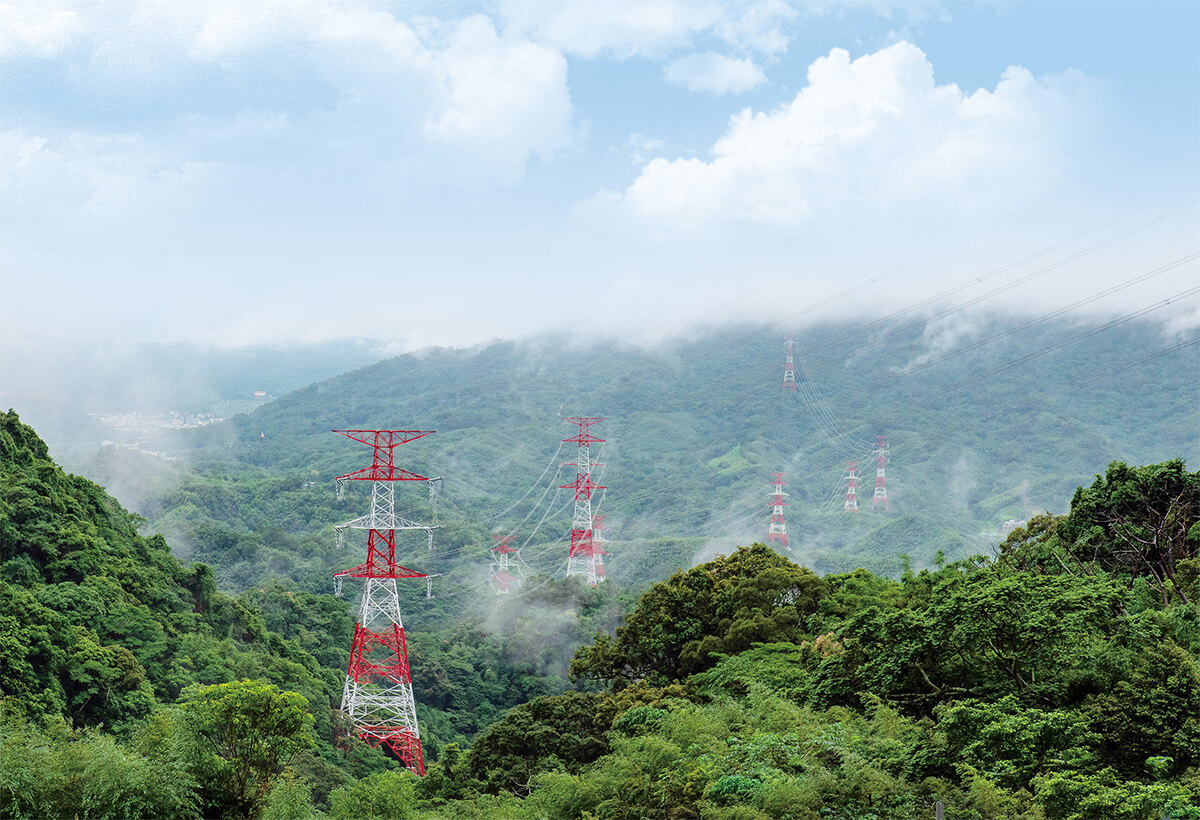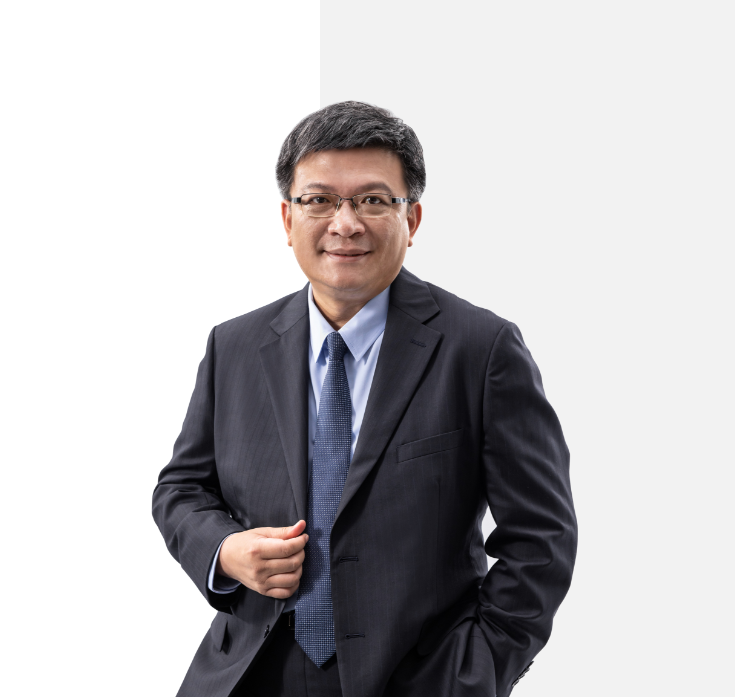As climate change intensifies and the global energy transition accelerates, Taiwan's power sector is undergoing a pivotal transformation. At the heart of the nation's power supply, Taipower is entrusted with not only maintaining energy stability and resilience, but also playing a vital role in advancing the net-zero transition. In 2024, Taipower actively adjusted its strategies and actions to align with a holistic vision for sustainable development. Through cross-departmental collaboration and policy coordination, the Company is working to strike a balance between reliable power supply and long-term sustainability, reaffirming its role as a central energy hub that supports industrial upgrading, climate governance, ecological protection, and social well-being.
Driving the Energy Transition Through Innovation and Collaboration
Responding to the global imperative for carbon reduction, Taipower continues to promote the development of renewable energy, energy storage, and smart grids. In 2024, the Company completed the Yilan (Dongshan) Energy Storage System to enhance grid stability in northeastern Taiwan and launched the Longtan Energy Storage System to further expand capacity. The integration of AI and digital management tools has improved grid flexibility in managing the intermittency of renewables.
The commissioning of Units 8 and 9 at the Datan Power Plant has also enhanced system capacity, in line with the national policy of "Increasing Gas, Reducing Coal." Taipower has made significant progress in frontier technologies, including plans for an Ammonia Blending Demonstration Project at the Dalin Power Plant targeting over 5% ammonia co-firing by 2030. The Company also initiated a partnership with the Electric Power Research Institute (EPRI) to collaborate on net-zero strategies, energy hub planning, and carbon capture demonstrations. To expand green electricity access, Taipower launched a small-scale green power sales program in 2024, incorporating offshore wind power for the first time and enabling broader participation among small and medium-sized enterprises. The Company continues to support grid infrastructure for renewable integration and EV charging facilities while developing advanced management systems to better monitor distributed energy resources.


Reinforcing Grid Resilience and Enhancing Power Reliability
In 2024, Taipower faced multiple natural disasters, including the April 3 Hualien Earthquake, which triggered generator trips at the Heping and Taichung Power Plants and effected over 370,000 users. Typhoons Gaemi, Khanun, and Koinu also impacted power supply in various regions, particularly in remote areas. Taipower's efficient emergency response mechanisms enabled rapid mobilization and repairs, restoring power swiftly and earning public recognition.
To enhance grid resilience, the Company has advanced its NT$564.5 billion Grid Resilience Enhancement Program, encompassing three core pillars and ten strategic actions. As of December 2024, 98 out of 331 planned projects have been completed, with 59 more scheduled for completion in 2025. Taipower has also accelerated its smart grid deployment by adopting the IEC 61850 digital substation standard, aiming to upgrade 185 substations by 2030 and construct 75 new stations by 2033.
These efforts are expected to reduce outage duration (SAIDI) and frequency (SAIFI). Taipower is actively participating in the development of the electricity trading market to improve supply flexibility. By the end of 2024, 102 participants had joined the trading platform, with a total capacity of 1.79 million kW-equivalent to three coal-fired units. On offshore islands, Taipower is moving forward with the installation of Units 3 and 4 on Green Island to improve supply stability and reduce restoration time after disasters, underscoring the dual goals of energy equity and resilient infrastructure.
Safeguarding the Environment and Advancing Sustainability
In 2024, under the theme of "Seeing Taipower – Embracing Ecology," the Company conducted a comprehensive biodiversity survey across its facilities and highlighted conservation efforts at eight power plants for ten flagship species. Through initiatives such as low-carbon cycling tours and hydropower/ geothermal exploration activities, Taipower promoted environmental education and raised public awareness of energy transformation and ecological sustainability. Collaborations with local schools also fostered early engagement with environmental issues among younger generations.
Moreover, Taipower has strengthened its pollution prevention and control. In 2024, the Taichung Power Plant launched new air pollution control projects, enhancing NOx removal, dust collection, and desulfurization systems-all of which already outperformed regulatory standards. Thermal plants have also implemented water reuse systems to reduce consumption and used hydrodynamic modeling to optimize discharge systems and minimize marine impact. The adoption of high-efficiency combined-cycle gas turbines continues to reduce carbon emissions while improving dispatch flexibility and overall environmental performance.

Embracing Challenges to Build a Sustainable Future
Sustainability is not achieved through infrastructure and technology alone-it requires broad societal understanding and participation. Taipower actively engages stakeholders by promoting energy education, talent development, and energy literacy through collaboration with communities, schools, and environmental organizations. Internally, the Company continues to strengthen its sustainability capacity through talent cultivation, knowledge transfer, and organizational resilience. These efforts are complemented by initiatives in green finance, asset optimization, and risk management, laying a solid foundation for long-term business sustainability. In advancing energy infrastructure, environmental protection, and social inclusion, every step Taipower takes is a step toward a resilient and sustainable Taiwan. The Company is committed to fulfilling its dual mission of ensuring a stable power supply while leading the transition to net-zero emissions-guiding Taiwan toward a low-carbon, inclusive, and sustainable energy future.



